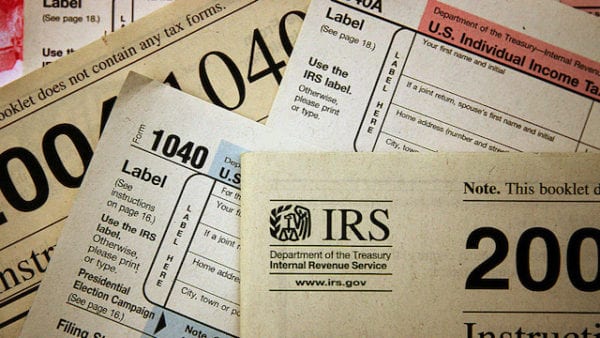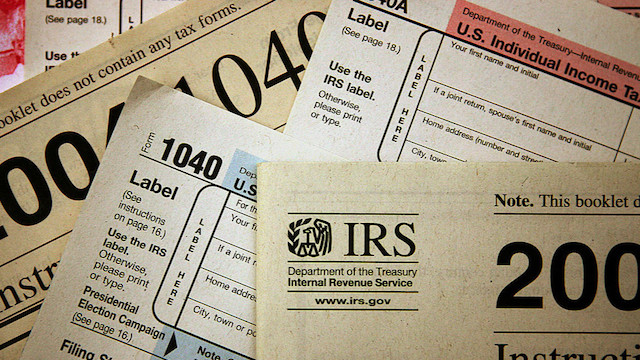Table of Contents

Tax time is something that many people dread, but operating a small business can come with its own variety of additional stress. There are a lot of things that can be deducted that you may not be aware of, or perhaps you just aren’t aware exactly how or what they entail. The list below has ten lesser-known tax deductions that you may qualify for if you run a small business. One thing to keep in mind is that diligence record keeping and finding a trusted tax professional are the two keys to having a smooth tax season.
Home Office


If you have an area in your home that you have designated to business, you can write off associated expenses on your taxes. There are two ways for you to do this. You can deduct actual expenses if you have kept up with your records or you can use the simplified method. With actual expenses, you would deduct painting or repairs made to that area of your home, and insurance, utilities, rent, and so on based on the percentage. The simplified method set forth by the IRS is calculated by multiplying $5 per square foot of your home used for business up to $1,500.
Guard Dogs


If you have a dog that you keep on site to guard your storefront or your merchandise, then you can deduct related expenses. So, this means that adoption fees, maintenance like grooming and visits to the vet, and everyday care like food and water can all be deducted when tax time rolls around. This doesn’t apply to a personal pet that you periodically take to work though.
Music Equipment


If you use music in your workplace to keep your employees productive or maybe just to create a calm and creative atmosphere, you may be able to deduct those costs. This will cover stereo equipment like speakers, and it will also cover subscription costs for services such as Pandora, Muzak, or Spotify. As with anything, it is important that you keep all of your documents in order and can prove that this is an ordinary and necessary expense.
Contest Prizes


Using form 1099-MISC, or Miscellaneous Income, you can deduct the cost of prizes for customer contests that you held through the year as long as they exceed $600. In detail, the instructions say “Also enter in box 3 prizes and awards that are not for services performed. Include the fair market value (FMV) of merchandise won on game shows. Also include amounts paid to a winner of a sweepstakes not involving a wager.”
Entertainment


You can deduct 50% of your unreimbursed entertainment expenses as long as they’re not considered lavish or extravagant in the specific circumstances, and you’re not trying to simultaneously claim the same meal or event as a travel expense for business travel tips. Entertainment expenses also must be directly related to business following the guidelines set forth by the IRS. The IRS says that “Entertainment includes any activity generally considered to provide entertainment, amusement, or recreation, and includes meals provided to a customer or client.”
Conventions


Going to conventions and trade shows can be considered part of employee development, marketing, or could fall into other categories. As long as you have kept records, expenses related to this sort of thing are deductible. In addition, you can consult with your tax professional to see if local seminars and even some webinars are covered under this policy. Expenses could be the cost of entry, meals, and also the standard travel expenses incurred while you were getting you (or an employee) there and back.
Customer Gifts


If you give gifts to your customers for special promotions or customer appreciation, you can deduct up to $25 per gift. Gifts that are given to members of the customer’s family also qualify unless you have an independent business connection with the recipient. Incidental costs related to these gifts, such as engraving jewelry, wrapping the gift, etc. do not qualify to be deducted individually. Gifts must be valued more than $4, not have your name clearly and permanently imprinted on them, and the gift can not be one of a number of identical items intended for distribution.
Royalties


Whether you have to pay royalties to an investor or another business, they are a deductible expense. Most often, these costs are deducted as a marketing, selling, and advertising expense. Royalties were deemed a deductible expense as recently as 2010. You will have to look closely at the agreements you have in regards to this, though, because the terms of the agreement and the uniform capitalization rules may require you to capitalize them rather than count them as an expense.
Losses on Bad Debts


If you have reasonably tried to collect on a debt and failed to do so, this becomes a business bad debt. You must be able to prove that you have taken reasonable steps to collect the debt from the customer or business that owes you and were unable to do so. An example of this would be credit sales that you were unable to collect on. You can report these to the IRS when you file your taxes, and they are entirely deductible as long as the amount in question was included in your gross annual income.
Carryovers



There are many overlooked deductions, and several of them can be carried over into the following year to reduce taxable income. For your home office, you can only do this if you use the actual expenses method of record keeping and filing it on your taxes; this can not be done with the simplified method. Operating losses and capital losses are also expenses that can be carried over. You and your tax professional can comb through your records and find several carryover expenses to include to reduce your taxable income further.



.png#keepProtocol)




.png#keepProtocol)
More Stories
Biggest stock movers today: Okta, Snowflake, and more (NASDAQ:OKTA)
EU leader warns of risks of wider war; NATO rules out sending troops to Ukraine
Bitcoin soars to two-year high above $56,700 as halving event looms